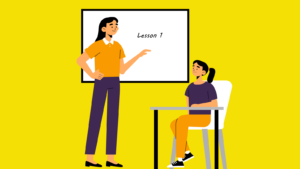Motivating Adult Learners – Three Essentials
Any teacher knows that motivated students will work more effectively towards their language goals. Motivation is particularly important in the adult classroom, to which learners arrive with their own goals, prior experience of study, and fears about returning to the role of ‘student.’ Adults also have busy lives, careers, families, and a multitude of other commitments vying for time in their day. To dedicate precious time to learning a language, learners need to feel that a) they want to succeed, and b) they can succeed. A warm smile and patient approach can go a long way, but after that first lesson, motivation needs to be grounded in more than good rapport.
In addition to an insightful article by Julio Vieitas for EFL Magazine (you can read it here: , the CDC has an excellent, brief guide for teachers of adult learners, aimed at public health training (you can download it here:
This guide contains a useful section of things to keep in mind when teaching adults, including:
- They need to know why this training matters to them.
- They need to be able to see how they can use what they are learning now.
- They want to share their experiences—with you and with each other.
There are several more; however, I’ve found these three things particularly important in my classroom.
Knowing why it matters
Adult learners need to know explicitly how their English training will help them for the same reason they need skills to practice during class time and targeted content: they are time-poor. Most adult learners are not interested in learning English simply as an academic exercise. They need English for greater career opportunities or to access higher education. They need each lesson to be targeted at delivering specific knowledge with practical outcomes.
As teachers, we can meet this need by:
- Planning explicit goals/objectives for each lesson
- Ensuring these goals match what learners want to get out of the course
- Communicating the goals clearly and explicitly (by stating it, writing it on a whiteboard, course checklists, etc.).
- Including a brief reflection of each lesson (or after a series of lessons) to assess whether the goal has been met. This could simply be asking, “Today, our goal was to order from a menu in English. Can we do that now?” and eliciting a nod or ‘yes’ from the class.
This final reflection takes only a minute and allows learners to feel that a) your teaching is targeting their needs, and b) they are making progress. Which brings me to…
Seeing how to use learning
The most successful activities I’ve used in an adult classroom are, without a doubt, role-plays and short projects to create authentic products.
When I taught medical professionals, the class objective one day was to learn a set of vocabulary for taking blood pressure (‘blood pressure cuff,’ ‘beats per minute,’ ‘normal,’ etc.). We learned the vocabulary words paired with pictures, practiced pronunciation, and used each in a sentence. Then, groups of students acted out, taking each other’s blood pressure from greeting the ‘patient’ to explaining their findings and recording them on a chart. Suddenly, the vocabulary list became real. Learners loved it and felt greater confidence in their ability to use their learning outside of the classroom. They had to think on their feet in a relevant but organic and unscripted conversation. Importantly, these activities should be fun without being childish and challenging without being unachievable.
When studying the terminology related to common childhood illnesses, the class created brochures for an illness of their choice, including text and images. This task practiced writing, reading (plus research skills) and computer literacy in English, and resulted in a usable product. Not only did learners have a brochure to demonstrate their skills, but they could also see how vocabulary, sentence structures, and other writing skills could be applied to their career. Other such projects could include planning a presentation to work colleagues, designing a menu or price list for the student’s business, or creating an advertising poster they can use at work.
Sharing experiences
Unlike younger learners, adults have a wealth of life experience and conceptual knowledge that they bring to their English classrooms. By encouraging learners to share their own stories, teachers:
- Show respect for the learner
- Allow learners to apply English to concepts and experiences they are familiar with, and
- Create opportunities for authentic skills practice
Some strategies and resources I use to encourage storytelling are a lucky-dip-style box of prompt questions, such as “What is your happiest memory?”, picture prompts for free writing, diary entry activities, and peer-interviews.
Allowing students to share their own experiences creates authentic and meaningful speaking, listening, and writing tasks. What point is there in asking a student from South Sudan to describe a day at the beach? People want to tell their stories, and that desire will motivate them to learn the vocabulary and sentence structures to do so. Feeling valued and listened to is a powerful motivator.
I love learning how to motivate adult learners. It’s the most rewarding aspect of my career.
What’s your opinion on how to motivate adult learners?




